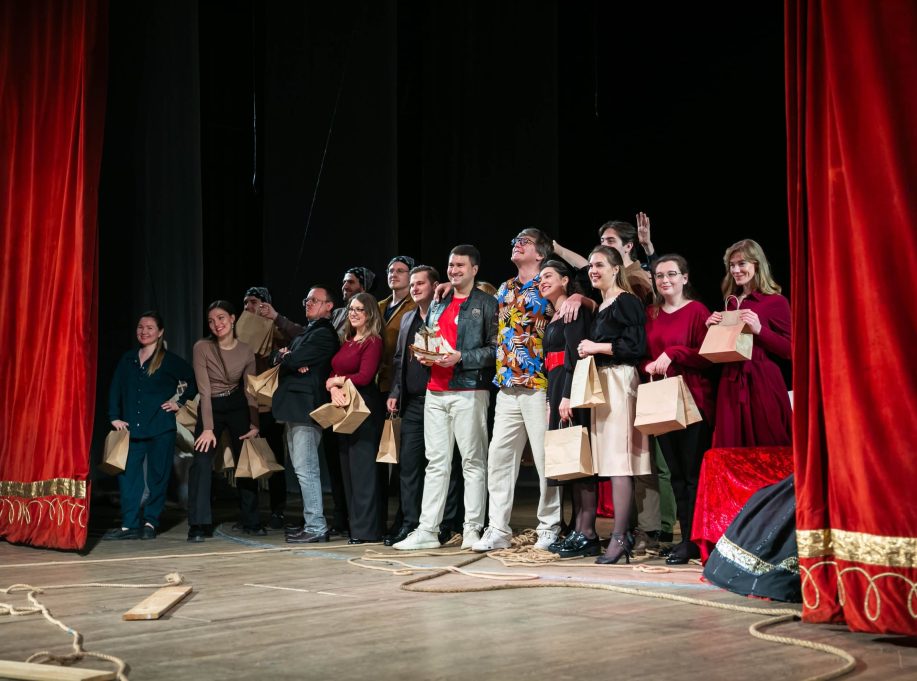The great Soviet opera director Boris Alexandrovich Pokrovsky lamented that composers of the 18th and 19th centuries did not write chamber operas—small-scale works for a limited number of performers, accompanied by piano or a string quartet, where the psychology of the human soul could be conveyed subtly, without the grandiosity and distance typical of traditional opera. He devoted forty years of his life to creating and popularizing such repertoire at his Chamber Music Theater. While traditional operas dominated, there were also some chamber operas, which fulfilled Pokrovsky's vision.
Today, the tradition of chamber opera continues, with contemporary composers showing a greater interest in this format than in the past. Chamber operas are written and frequently performed on small stages of academic musical theaters and various music festivals. Examples of attention to small forms in major Moscow theaters can be seen on the Chamber Stage of the Bolshoi Theater, the Small Stage of the Moscow Academic Musical Theater, the Small Stage (White Column Hall of Princess Shakhovskaya) of "Helikon-Opera," and the Mirror Foyer of "New Opera," among others. However, more attention is still given to traditional format operas. Truly intimate chamber operas, without orchestral accompaniment, are still rarely performed, which is unfortunate as they do find their audience when staged, as evidenced by the full house at the opening of the "Muffled Voices" festival on February 7 this year.
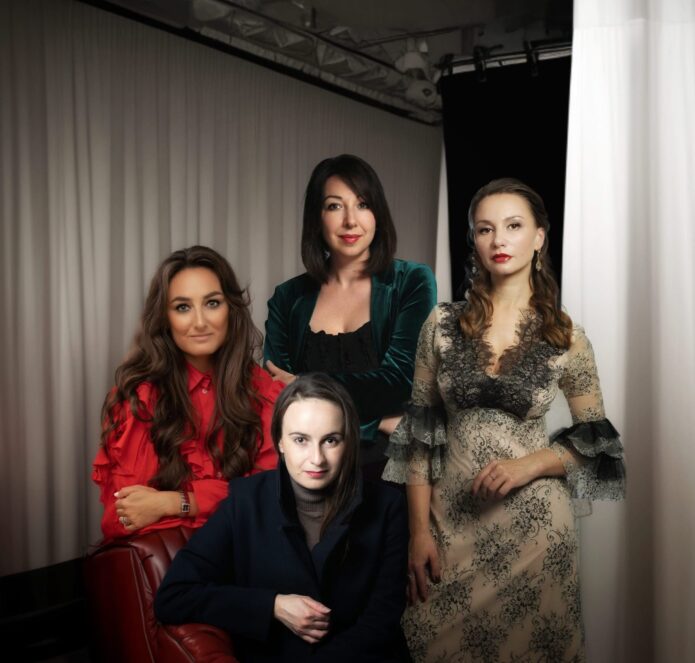
However, of all the opera festivals, "Muffled Voices" is particularly special and unique: it focuses not only on chamber compositions but also on works by women composers whose voices, for socio-cultural reasons, were not as prominent as they deserved in the past.
This unique initiative was brought to life by the musical organization "Lyrica Classic" in collaboration with the publisher "Shostakoviches and Stravinskies" and the project "Music of Our Time." The festival is dedicated to the 80th anniversary of Tatiana Alexeyevna Chudova—the only female composer at the Moscow Conservatory, a student of Tikhon Khrennikov, and an heir to the traditions of Vissarion Shebalin, Nikolai Myaskovsky, and the great Rimsky-Korsakov. At the festival's opening, two of her compositions were performed, marking the world theatrical premieres of the Russian master's chamber operas.
Tatiana Chudova's musical language blends the breadth and depth of Russian national melos with the traditions of flexible and expressive melodized recitative, drawing from Dargomyzhsky and the Mighty Handful, and incorporates the latest achievements in 20th-century composition techniques. Her work shows influences from Shostakovich and his circle, as well as avant-garde music trends. Masterfully using various sound effects, Chudova does not sacrifice the voice; her operas are crafted for singing, with the pain and turmoil of the human soul expressed through pliable cantilena. In monologues, she focuses on expressive emotional delivery, while in duets, she skillfully combines voices to create a dramaturgically convincing and harmonious ensemble.
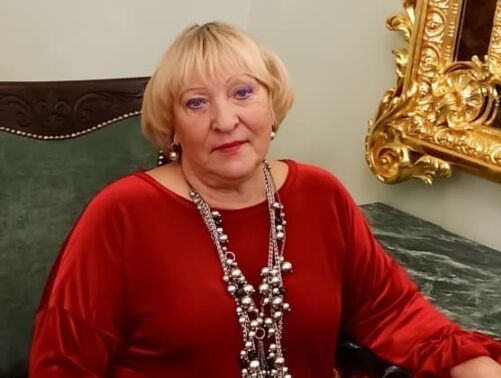
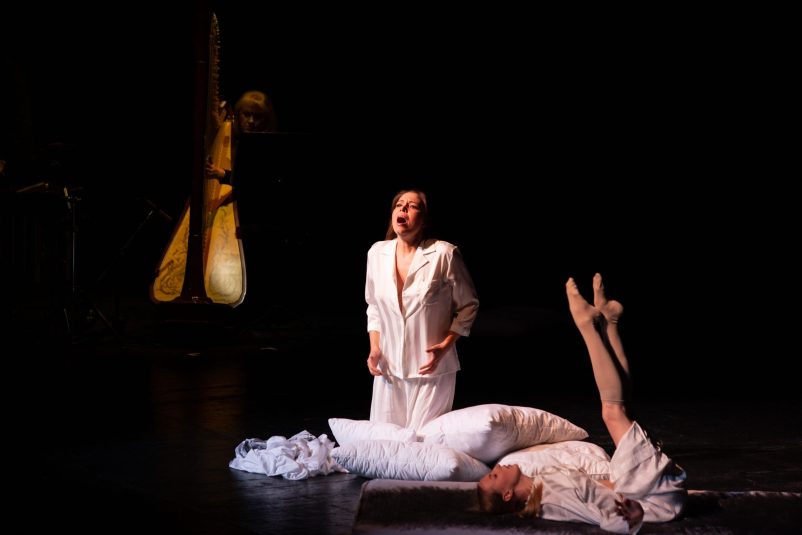
The first piece performed at the festival was the mini-mono-opera "Tatiana's Dream" (2020), about the very Tatiana Larina we know from childhood. The mysterious Freudian segment from Pushkin's great novel is omitted in Tchaikovsky's opera: Tatiana Chudova decided to fill this gap, giving us Tatiana's Dream to complement the famous Letter, where the heroine expressed her feelings openly and frankly. In the Dream, she conveys what lies beyond the lines, what she only vaguely senses, fearing her desires and the recesses of her subconscious. Chudova's vocal part for the heroine, her namesake, is filled with large interval leaps and singing at the edge of tessitura possibilities, creating a special tension and extreme agitation for Tatiana, who is tormented by anxiety and hidden desires.
The complex vocal part at the festival was masterfully performed by Helikon-Opera soloist mezzo-soprano Aleksandra Kovalevich: the mono-opera is accompanied by a chamber ensemble consisting of piano, violin, harp, and clarinet (this is not a makeshift arrangement – it was the author's intention). The plastic double of the singing heroine in Elizaveta Korneeva's production is the dancer Viktoria Mikhaylets, who visualizes much of what Tatiana-Kovalevich sings. Both actresses are dressed in white pajamas, and their "habitat" naturally becomes a snow-white bed. In moments of heightened fear, the director shows us the underside of the mattress, where black smudges imitate a bear's skin, visualizing the fearsome master of the Russian forests who appeared to Tatiana in her prophetic dream.
The second piece, the opera-dialogue "Russian Women" (1991), is also tied to the Pushkin era: it tells the story of the Decembrist wives, Princesses Volkonskaya and Trubetskaya, who followed their exiled husbands to Siberia.
The intense vocal dialogue of the heroines, in which voices alternate solo and intertwine in a whimsical duet, was expressively performed by Yulia Petrachuk and Olga Nadezhdina. Petrachuk's sensual lyric-dramatic soprano and Nadezhdina's honeyed contralto complemented each other, forming a superb duo that conveyed the rich palette of the heroines' emotions. The piano accompaniment by Karina Pogosbekova, as per the composer's decision, added ensemble perfection to the performance, sometimes singing with the soloists, sometimes setting a bleak context with harsh harmonies.
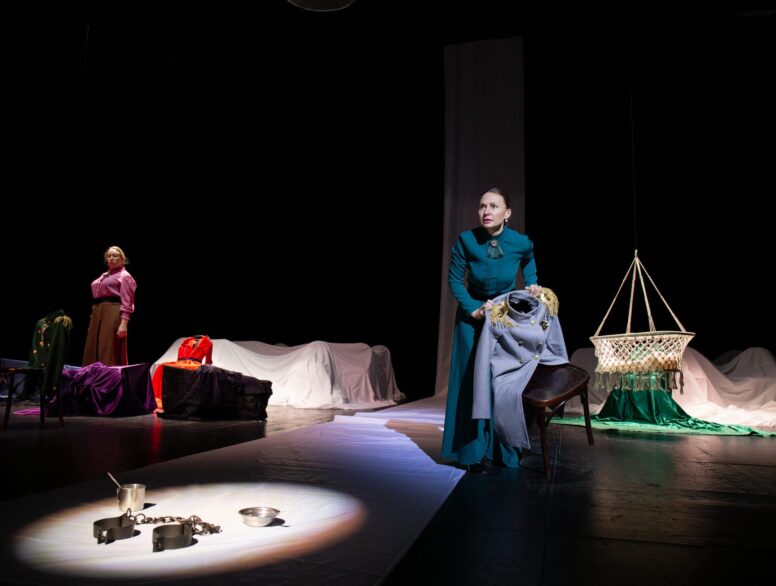
With minimalist scenic design, props, and the heroines' austere costumes, Elizaveta Korneeva and scenographer Varvara Timofeeva marked the transformation path of two aristocrats into "true Russian women" and their unenviable fate far from the glittering capitals.
The opera is rich in symbolism, open to personal interpretation: a white canvas descending from the stage's depth to the audience represents the road into the unknown, which the heroines decide to take before our eyes; luxury items of past life in Trubetskaya's hands as she leaves them behind; an empty cradle rocked with tenderness and fury by Volkonskaya in her "Lullaby," remembering the newborn son left behind in St. Petersburg, whom she will never see again; dressed chairs representing the souls of all Decembrist wives; the tolling of bells in the "tsar's murder scene" as the irreversible point of the heroines accepting their fate. In their new path, there is no romance of past days, only memory, which becomes both a remedy and a poison. Existing on the edge of their strength, closing their past lives with white sheets, they open up to the soul of the simple Russian people. The opera ends with the words, "Thank you, Russian people."
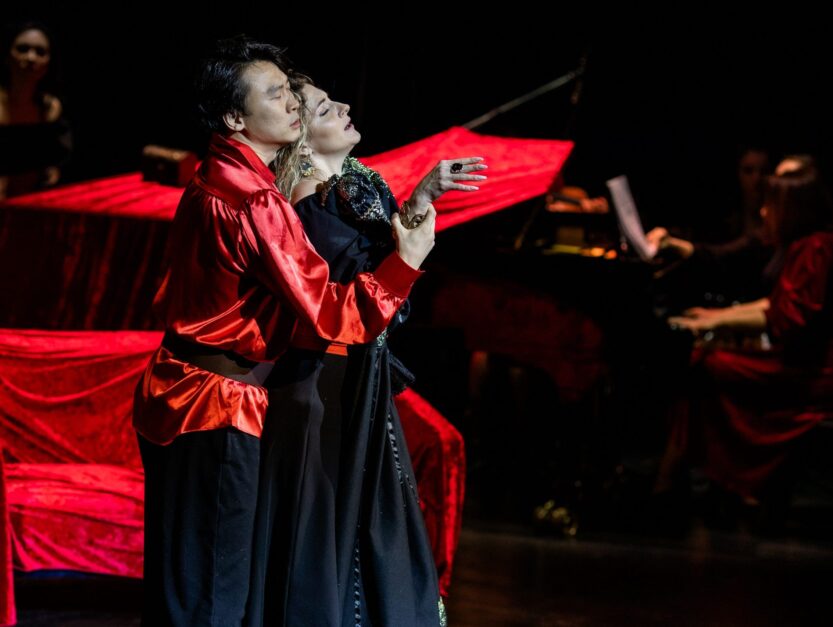
The third piece performed at the festival's opening was a sensational Russian and European premiere: for the first time on the Eurasian continent, Amy Marcy Beach's only opera, "Cabildo" (1932), was presented.
This chamber opera is set in 1814 during one of the Anglo-American wars. The "mistress of the seas" reluctantly let go of its North American colonies, and after the declaration of independence in 1776, there were several attempts to reclaim them. The opera revolves around one of the key episodes of the 1814 war - the Battle of New Orleans. However, for Beach, the historical context is merely a backdrop for both a love story and a detective narrative. The opera's hero, the pirate Pierre Lafitte, finds himself in the eerie "Cabildo" prison, but true love saves him - he is led out of the dungeon by the ghost of his beloved Lady Valerie, who continues to love and help him even after death.
Musically, Beach's opera reflects its time, when the rhythms and harmonies of jazz and musicals actively entered academic music in America, enriching it and giving it new life. While the Second Viennese School with its anti-vocal thinking was gaining popularity in Europe, Beach's opera, like Gershwin's works, shows another possible path for the development of vocal-theatrical art, where everyday genres and the musical context of the era find their place in high genres. The lyrical fragments inevitably evoke associations with the music of Hollywood's golden age. However, Beach skillfully integrates these innovations into late-romantic formulas in the style of Puccini, resulting in a genuine opera! Luxurious melodies, the flexibility of cantilena, the natural flow of vocal phrases, sophisticated and non-trivial harmonic solutions, and refined and inventive orchestration collectively indicate that Beach's opera is an extraordinary event in the music world, regrettably overlooked by major theaters and festivals.
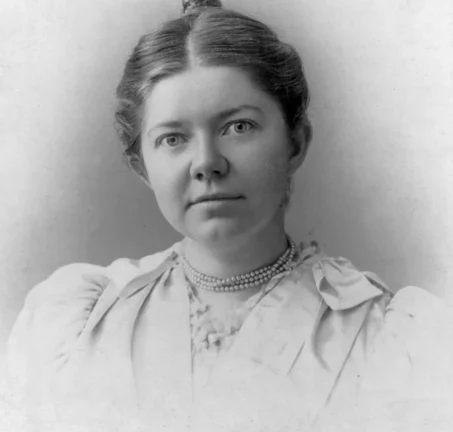
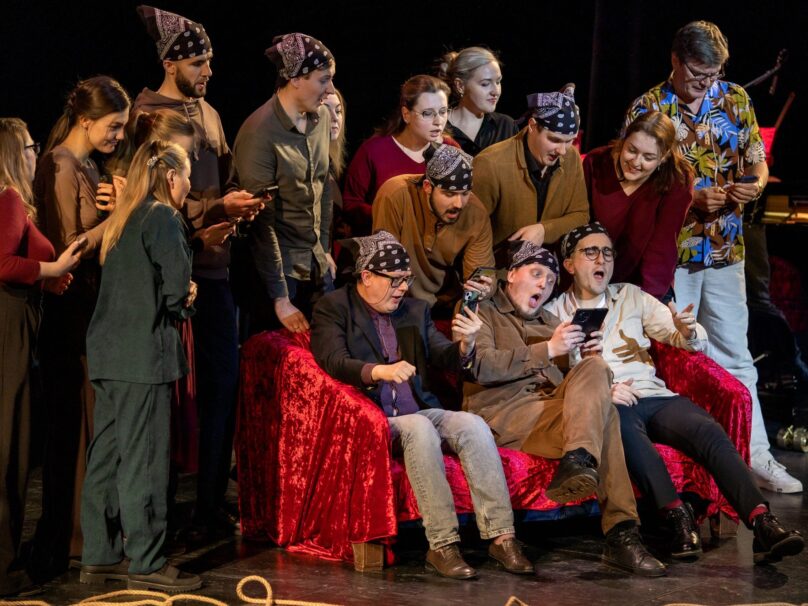
Aside from its inherent merits, "Cabildo" also found appropriate musical interpretation at the Moscow festival: the opera was beautifully sung and played. The vocal cast comprised leading singers from Moscow's major theaters with bright, beautiful, and expressive voices - Bolshoi Theatre soloist Olga Seliverstova (Valerie), Stanislavsky and Nemirovich-Danchenko Music Theatre soloists Polina Sharovarova (Mary) and Stanislav Lee (Pierre), internationally acclaimed singer Denis Sedov (Guide and Jailer), Moscow Regional Philharmonic soloist Ilya Khardikov (Tom), and young tenor David Sanikidze (Dominique Yu). The vocal ensemble "ARIELLE" under Elmira Dadashova also performed splendidly. The English language of the performers sounded authentic, with the opera performed in its original language. The precise and inspired vocal accompaniment was provided by a mini-orchestra consisting of Karina Pogosbekova (piano), Vasilisa Haddad (violin), and Galina Malyan (cello).
In her staging of the opera, Elizaveta Korneeva wisely avoided the literalism of a "historical production": she designed the performance as a game – a Guide tells a group of young museum visitors the mystical and romantic story of Pierre and Valerie on red plush museum sofas, and the story comes to life in theatrical images, making distant historical characters relatable to the young audience.
The festival's grand start promises its successful continuation. Besides Moscow, events will be held in St. Petersburg, Yaroslavl, and Tula. Seven more operas will be performed – two other works by Tatiana Chudova ("Professor Dowell’s Head" and "Von Meck – Tchaikovsky"), as well as contemporary American and Russian operas by our contemporaries Missy Mazzoli, Anne LeBaron, Alina Nebykova, Alina Podzorova, and Anna Kuzmina.
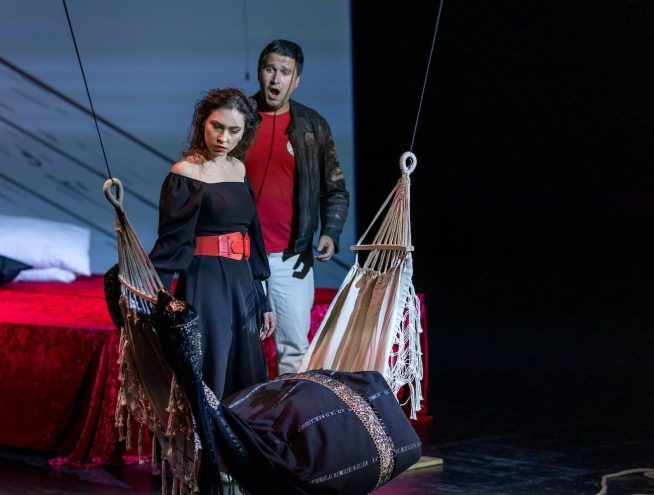
Alexander Matusevich
Moscow, February 10, 2024
Photos by Alina Khachaturova and Vladimir Ivanov


